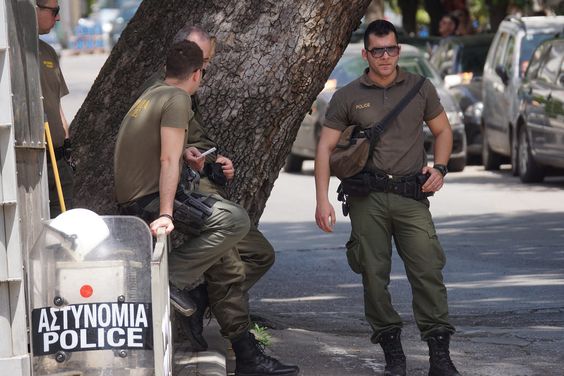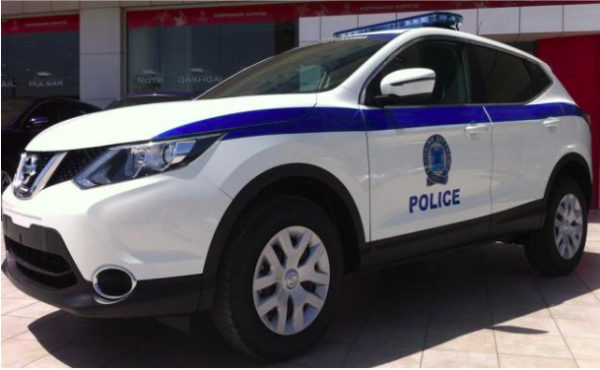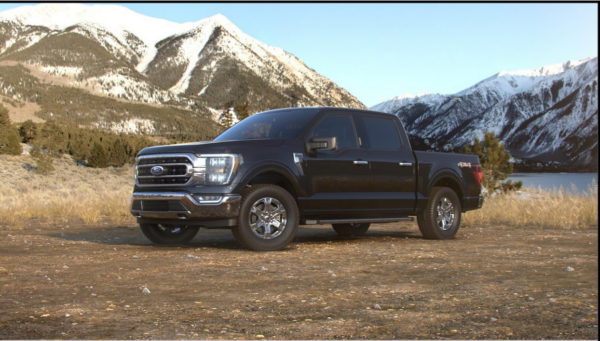The respondent, a 48-year-old man from Syria was pushed back from Orestias (GR) to Karakasım (TR) with a group of eight people. He had already experienced three pushbacks from Greece to Turkey, of which three happened last year, with this most recent one occurring on 15.03.2022.
The respondent and the group, six men and two women from Syrian and Afghanistan, crossed the border into Greek territory at about 9 p.m on the 14th of March. Subsequently, the group walked for 9 hours through agricultural fields, covering around 17 kilometers. They took only 5-minute-long breaks.
As the sun was about to rise the next morning on 15.03.2022 at around 07:00 a.m. and there was a town in front of them, so they decided to hide in a small forest close by and wait for the sun to set in order to continue walking unseen. As they rested in the forest they had food and drinks because they didn’t eat anything when they were walking, explained the respondent.
Around 11:00 a.m. they heard footsteps close to them. Suddenly, five men showed up and surrounded them from all sides, pointing their firearms towards them, described the respondent. He recalled that two of the uniformed men wore a deep blue uniform with the Greek flag on their left arm and some writing in Greek language next to a logo and “Police” written on their chest. He further described that three other officers wore olive green uniforms with writing on the right side of the chest over the shirt pocket and a Greek flag and black boots which the respondent identified as resembling Greek border guard uniforms as seen in Image 1. They carried fire ams and reportedly told the transit group “don’t move” and then asked them to pick up their stuff and walk with them outside the forest.

Image 1 ΑΣΤΥΝΟΜΙΑ police (Riot police)
After that, they walked for five minutes while some group members were reportedly hit with a plastic baton to walk quicker, until they arrived at a paved road where the men in uniforms had parked their cars. According to the respondent, there were two vehicles, a Nissan white car with a blue stripe and “Police” written on it and a police logo, identified by the respondent as being the same as the vehicle in Image 2, and a black pick-up without any writing, confirmed by the respondent to be the same as the car in Image 3.


Image 3 Unmarked Black Ford Pick-Up
The men in uniform didn’t check the people’s documents but took photos of them, both as a group and individually, by using a black phone with the EU flag on the back, recalled the respondent.
They took the transit group’s phones, then asked them “where are you from? And where do you want to go?” to which the group answered truthfully: “We are Syrians and Afghans and we want to go to Thessaloniki camp”. This intention to ask for asylum in Greece was not considered, “they ignored everyone and they didn’t care”.
Civilians were passing on the road in their cars and some of them slowed down to see what was happening. The respondent recounts: “Someone was smiling like he was happy that we were caught. After about 15 minutes, an old white van with a trunk measuring 3 x 1.5 meters arrived. The group was loaded into the trunk of the unmarked white and they drove fast for 15 minutes to a detention site, located in a forest. The van stopped in the front yard of the detention building. The respondent described the site as an “old white building surrounded by a 3-meter barbed fence with the Greek flag”. Reportedly, there were two big white vans and one red van, and one white Nissan car with a blue stripe and “police” written on it, verified by the respondent as matching the vehicle displayed in Image 3.
The respondent described residential houses and three caravans close to the fence which was surrounding the detention center, and in the area around the detention site, some civilians were passing by on a paved road close by.
At the detention site, approximately 10 men wearing a sage green uniform, jackets, and pants were present; they had a logo on their uniform on the left arm and some writing in yellow on their shoulders above the logo, which the respondent described resembled the Greek border guard uniform.
The uniformed men made the group members stand in line in the yard and put their bags in one place. Then two men wearing gloves ordered the males to take off their pants, jackets, and shirts in the yard. The respondent recalled, “They searched us and even touched our sensitive places in front of women”.
The women were told to take off their jackets and were left with shirts, pants, and sneakers, then they were searched by a male officer, described the respondent. They uniformed men reportedly took the bags, jackets, shoelaces, and belts from the people and didn’t give them back their personal belongings except the money that they had found.
Around 12:00 p.m. the group were put into a cell of approximately 4 x 5 meters which had dirty floors and smelled nasty because of the dirty toilet inside it. Also, there were four metal bunk beds without mattresses and a steel metal door.
Inside of the cell, 13 additional Afghan people were detained, their ages ranging from 24 to 35 years old and were all male. The entire group was detained here for nine hours and they didn’t get any food or water. Moreover, no one checked their documents, took their fingerprints, or took photos of them. During that time, the men in uniforms reportedly brought more people to the cell.
By the end of the day, the number of detainees rose to around 80 people of different nationalities, including Syria, Palestine, Iraq, Afghanistan, Somalia, and Morocco. The youngest individual was a 5-year old child from Iraq and the oldest person was a 55 years-old Iraqi man. In total, seven women were detained of whom one got her clothes torn apart while a male officer searched her.
The respondent then described 13 men coming into take the people from the detention site. Seven uniformed men were wearing civilian clothes and balaclavas, and four of them were wearing dark blue uniforms. They loaded the transit group in two different vans, the same as aforementioned, with approximately 40 people in each car. The respondent noted that it was hard to breathe with all of these people in one car.
They drove very fast for 10 minutes until they arrived at the push back site at a river where more uniformed men were present. Some of them reportedly wore a deep blue uniform resembling Greek border guard while others wore civilian clothes. They had tree branches and metal batons as weapons. The men dressed in civilian clothing spoke Turkish, Kurdish, and Arabic with Syrian and Iraqi dialects.
The transit group was ordered to keep walking in a line and to not make any sound and were searched again, recalled the respondent. The officers took all the money they found and all personal belongings of the group.
The respondent recounted:
“There was a girl who spoke Kurdish. She had a necklace and when he [the man] was searching her, he took it from her neck and she was begging him to return it because it was all she had. He slapped her twice and told her to shut up”.
According to the respondent, they kept kicking and hitting people, including minors and women, with the tree branches. The respondent said they used any chance they had to scare them before starting to push them back. In the river, there was a black rubber boat with the Greek flag on its side and was white in inside, described the respondent. He recalled how the officers were transferring eight people by boat with two drivers each time, then coming back to take another eight people. The respondent waited for 30 minutes to be taken on the boat as he was in the last group. The group were not taken all the way across the river, but ordered to jump into the water in the middle of the river. They also did this to minors and women. The respondent said that the water level was up to his chest.
The pushback happened between 10 and 11 p.m. on 15.03.2022.
According to the respondent, once they arrived at the Turkish side, the transit group found themselves in agricultural fields with some canes at the river and some trees. The respondent recounted:
“It was dark and I really didn’t know where I was. I was looking for anyone from my group but I didn’t find any. A guy told me to run fast from the borders before the Jandarma catched us and takes us to detention”
He walked for one hour to get to the village Karakasım, then he walked for six hours and around 23 kilometers to get to Edirne.
